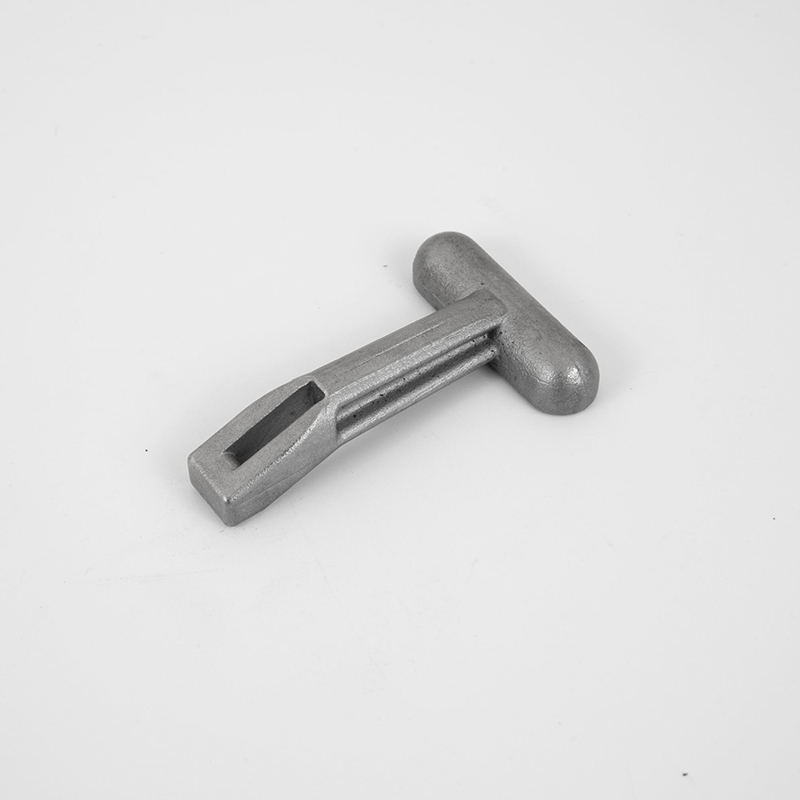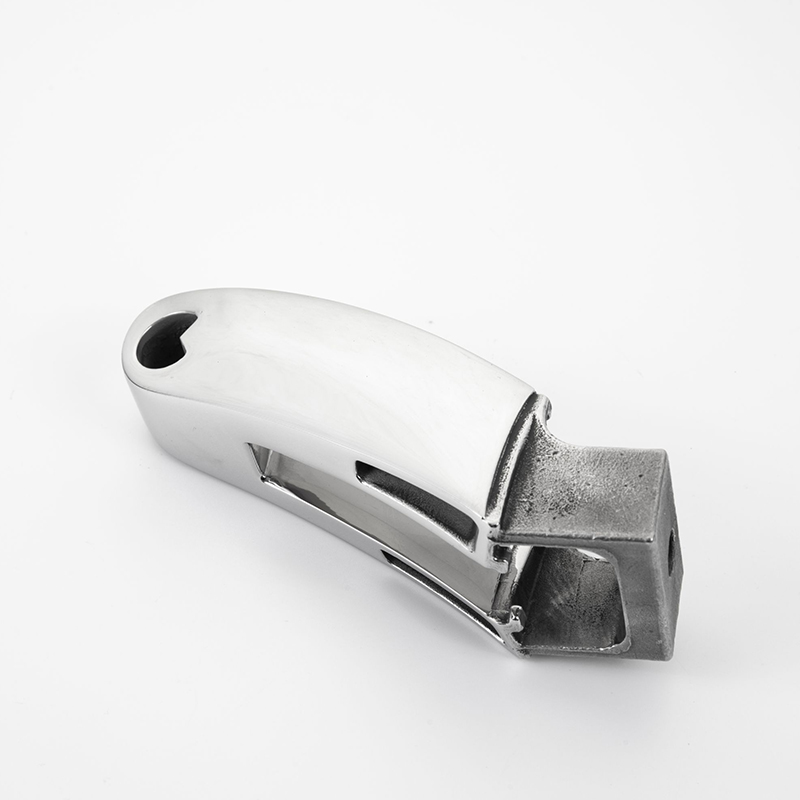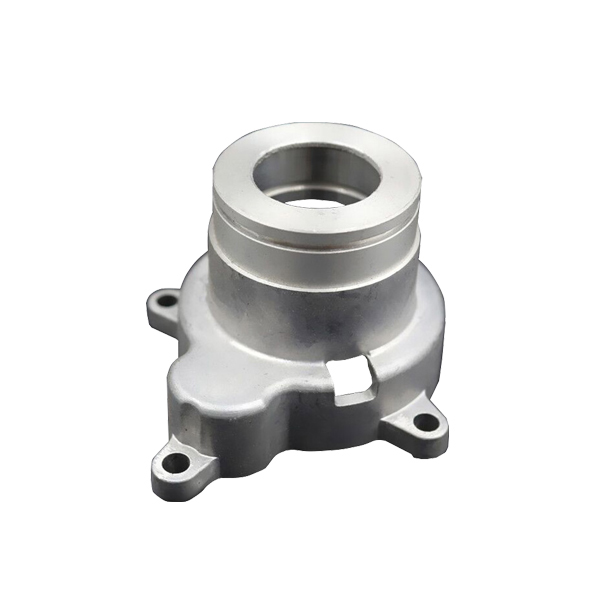Products
Steel Precision Machining
The following is the introduction of high quality Steel Precision Machining, hoping to help you better understand Steel Precision Machining. Welcome new and old customers to continue to cooperate with us to create a better future!Steel precision machining is a manufacturing process that involves the use of CNC machines to remove material from a steel workpiece to create a desired shape, size, or finish. The process is also known as precision CNC machining and is widely used in industrial production to make high-quality steel parts with tight tolerances and complex geometries. The steel precision machining process is typically done with CNC mills, turning centers, or drills that rapidly rotate and cut away material from the steel workpiece.
Send Inquiry
Product Description
What is Steel Precision Machining?
Steel precision machining is a manufacturing process that involves the use of CNC (computer numerical control) machines to remove material from a steel workpiece to create the desired shape, size, and finish. It is a highly accurate and precise method of producing steel parts that are used in different industries such as aerospace, automotive, medical, telecommunications, and defense.
The steel precision machining process involves programming a CNC machine with specific instructions to control the movement of a cutting tool that removes material from a steel workpiece to create the desired shape. Machine operators use software to design a 3D model of the part, which is then loaded into the CNC machine. The machine uses this model to cut production parts to precise dimensions, using the most efficient cutting paths.
Steel precision machining is essential because it allows manufacturers to create steel parts with very tight tolerances and complex shapes that would be challenging to produce using conventional machining methods. This process offers high accuracy, efficiency, and repeatability, making it suitable for producing large quantities of steel parts.
Overall, steel precision machining is a versatile manufacturing process that produces high-quality, precise steel parts that are widely used in various industries due to their strength, durability, and high-quality surface finishes.
The steel precision machining process involves programming a CNC machine with specific instructions to control the movement of a cutting tool that removes material from a steel workpiece to create the desired shape. Machine operators use software to design a 3D model of the part, which is then loaded into the CNC machine. The machine uses this model to cut production parts to precise dimensions, using the most efficient cutting paths.
Steel precision machining is essential because it allows manufacturers to create steel parts with very tight tolerances and complex shapes that would be challenging to produce using conventional machining methods. This process offers high accuracy, efficiency, and repeatability, making it suitable for producing large quantities of steel parts.
Overall, steel precision machining is a versatile manufacturing process that produces high-quality, precise steel parts that are widely used in various industries due to their strength, durability, and high-quality surface finishes.
Why is it Called Steel Precision Machining?
The term "steel precision machining" refers to a manufacturing process that uses CNC (Computer Numerical Control) machines to remove material from a steel workpiece with high precision and accuracy to achieve tight tolerances.
The term "precision" refers to the accuracy and consistency of the process that results in finished steel parts with tight dimensional tolerances, high surface finishes, and complex geometries. The process involves using computer programs and CNC machines to control the movement of cutting tools that remove material from the steel workpiece, creating the desired shape, size, and surface finish.
The term "steel" refers to the type of metal used in the process. Steel is a strong, durable, corrosion-resistant material that is commonly used in different industries to produce high-quality parts that require the strength and durability of steel.
Overall, steel precision machining is called so because it is a highly precise and accurate manufacturing process that creates steel parts with very tight dimensional tolerances and excellent surface finishes. The process involves using computer-controlled machines to remove material from steel parts, resulting in parts with high accuracy, consistency, and quality.
The term "precision" refers to the accuracy and consistency of the process that results in finished steel parts with tight dimensional tolerances, high surface finishes, and complex geometries. The process involves using computer programs and CNC machines to control the movement of cutting tools that remove material from the steel workpiece, creating the desired shape, size, and surface finish.
The term "steel" refers to the type of metal used in the process. Steel is a strong, durable, corrosion-resistant material that is commonly used in different industries to produce high-quality parts that require the strength and durability of steel.
Overall, steel precision machining is called so because it is a highly precise and accurate manufacturing process that creates steel parts with very tight dimensional tolerances and excellent surface finishes. The process involves using computer-controlled machines to remove material from steel parts, resulting in parts with high accuracy, consistency, and quality.
What is the Steel Precision Machining Process?
The steel precision machining process is a manufacturing process that involves using CNC (Computer Numerical Control) machines to remove material from a steel workpiece to create parts with high precision and accuracy. Here are the key steps involved in the steel precision machining process:
Designing the CAD Model: The initial step in the process involves creating a 3D CAD (Computer-Aided Design) model of the part to be machined using specialized software.
Programming the CNC Machine: The CAD model is fed into a CNC machine, which is programmed to follow the 3D model's exact dimensions and specifications.
Setting up the Workpiece: The steel workpiece is attached to the CNC machine, which is precisely aligned to ensure accurate and consistent cutting.
Cutting the Steel Workpiece: The CNC machine uses tools such as drills, cutters, and lathes to remove material from the steel workpiece as per the CAD model's specifications. The machine continually monitors the cutting conditions and adjusts the process accordingly.
Quality Control: After the machining is completed, the finished parts are inspected for any defects, such as cracks, surface finish quality, and dimensional accuracy.
Finishing and Surface Treatment: The finished steel parts are deburred and surface treated to achieve the desired surface finish and color.
Steel precision machining is widely used across various industries, including aerospace, automotive, medical, and telecommunications, mainly because it produces high-precision parts with tight tolerances and complex geometries. The steel precision machining process is highly automated, efficient, and capable of producing high-quality parts at a relatively low cost.
Designing the CAD Model: The initial step in the process involves creating a 3D CAD (Computer-Aided Design) model of the part to be machined using specialized software.
Programming the CNC Machine: The CAD model is fed into a CNC machine, which is programmed to follow the 3D model's exact dimensions and specifications.
Setting up the Workpiece: The steel workpiece is attached to the CNC machine, which is precisely aligned to ensure accurate and consistent cutting.
Cutting the Steel Workpiece: The CNC machine uses tools such as drills, cutters, and lathes to remove material from the steel workpiece as per the CAD model's specifications. The machine continually monitors the cutting conditions and adjusts the process accordingly.
Quality Control: After the machining is completed, the finished parts are inspected for any defects, such as cracks, surface finish quality, and dimensional accuracy.
Finishing and Surface Treatment: The finished steel parts are deburred and surface treated to achieve the desired surface finish and color.
Steel precision machining is widely used across various industries, including aerospace, automotive, medical, and telecommunications, mainly because it produces high-precision parts with tight tolerances and complex geometries. The steel precision machining process is highly automated, efficient, and capable of producing high-quality parts at a relatively low cost.
What Materials can be Steel Precision Machining?
Steel precision machining can work with different types of steel and metals to create parts with precision and accuracy. Here are some common materials that can be used in steel precision machining:
Carbon Steel – Carbon steel is commonly used in steel precision machining due to its excellent strength, toughness, and hardness.
Stainless Steel – Stainless steel is a popular material for steel precision machining due to its high corrosion resistance and durability.
Tool Steel – Tool steel is used for steel precision machining because it is hard, durable, and can withstand high temperatures and stress.
Aluminum – Aluminum is a lightweight metal that is often used in precision machining due to its excellent strength-to-weight ratio and corrosion resistance.
Brass – Brass is a popular material for high-precision and fine machining applications, mainly because of its excellent electrical conductivity and aesthetic appeal.
Bronze – Bronze is commonly used for high-stress applications that require high strength and durability.
Copper – Copper is commonly used for electrical applications and has excellent electrical conductivity and thermal properties.
Overall, steel precision machining can work with a range of materials, including steel and other metals, to create parts that meet various industry requirements. Steel precision machining can produce parts with high accuracy, consistency, and quality that are essential across different industrial sectors.
Carbon Steel – Carbon steel is commonly used in steel precision machining due to its excellent strength, toughness, and hardness.
Stainless Steel – Stainless steel is a popular material for steel precision machining due to its high corrosion resistance and durability.
Tool Steel – Tool steel is used for steel precision machining because it is hard, durable, and can withstand high temperatures and stress.
Aluminum – Aluminum is a lightweight metal that is often used in precision machining due to its excellent strength-to-weight ratio and corrosion resistance.
Brass – Brass is a popular material for high-precision and fine machining applications, mainly because of its excellent electrical conductivity and aesthetic appeal.
Bronze – Bronze is commonly used for high-stress applications that require high strength and durability.
Copper – Copper is commonly used for electrical applications and has excellent electrical conductivity and thermal properties.
Overall, steel precision machining can work with a range of materials, including steel and other metals, to create parts that meet various industry requirements. Steel precision machining can produce parts with high accuracy, consistency, and quality that are essential across different industrial sectors.
What is Steel Precision Machining Used For?
Steel precision machining is widely used across various industries to produce high-quality, precision-engineered parts with tight tolerances and complex geometries. Here are some common applications where steel precision machining is used:
Aerospace Industry – Steel precision machining is extensively used in the aerospace industry to produce parts for aircraft. These parts include engine components, landing gears, control systems, and airframe parts.
Automotive Industry – The automotive industry uses steel precision machining to produce engine components, drivetrains, brake systems, and suspension components.
Medical Industry – Steel precision machining is used to produce medical implants, instruments, and other medical devices.
Manufacturing Industry – Steel precision machined parts are commonly used in manufacturing, including parts for machines and equipment, industrial tools, and molds for injection-molding and casting applications.
Telecommunications – Steel precision machined parts are used in telecommunications equipment, such as antennas and connectors.
Defense Industry – The defense industry also uses steel precision machining to produce high-quality parts, including weapons components, ammunition, and other military equipment.
Overall, steel precision machining is a highly versatile process that produces high-quality, precision parts that are essential across several industries. The process's accuracy and consistency are particularly useful in producing components that require a high degree of precision, durability, and reliability.
Aerospace Industry – Steel precision machining is extensively used in the aerospace industry to produce parts for aircraft. These parts include engine components, landing gears, control systems, and airframe parts.
Automotive Industry – The automotive industry uses steel precision machining to produce engine components, drivetrains, brake systems, and suspension components.
Medical Industry – Steel precision machining is used to produce medical implants, instruments, and other medical devices.
Manufacturing Industry – Steel precision machined parts are commonly used in manufacturing, including parts for machines and equipment, industrial tools, and molds for injection-molding and casting applications.
Telecommunications – Steel precision machined parts are used in telecommunications equipment, such as antennas and connectors.
Defense Industry – The defense industry also uses steel precision machining to produce high-quality parts, including weapons components, ammunition, and other military equipment.
Overall, steel precision machining is a highly versatile process that produces high-quality, precision parts that are essential across several industries. The process's accuracy and consistency are particularly useful in producing components that require a high degree of precision, durability, and reliability.
What are the benefits of Steel Precision Machining?
Steel precision machining offers several benefits over other manufacturing processes, including:
Precision: Steel precision machining produces parts with high accuracy, tolerances, and tight dimensional control. The process can create parts with complex geometries, which are often challenging to achieve using conventional manufacturing processes.
Consistency: Steel precision machining ensures consistency in the manufacturing process, resulting in identical parts with minimal defects and variations.
Versatility: The process can produce parts from different types of steel, including carbon steel, stainless steel, and tool steel.
Efficiency: Steel precision machining is an automated process that requires little human intervention. This makes the process fast and efficient, allowing for quick production of large quantities of parts of uniform quality.
Cost-effective: Despite the high initial investment in equipment and programming, steel precision machining is a cost-effective manufacturing process in the long run due to its efficiency and ability to produce high volumes of parts with minimal waste.
Wide-range of applications: Steel precision machining is widely used in different industries such as aerospace, automotive, medical, telecommunications, and defense, making it highly versatile.
High-quality Surface Finish: Steel precision machining can produce parts with high-quality surface finishes, which can be improved through secondary processing, such as polishing or surface treatments.
Overall, steel precision machining offers several benefits over other manufacturing processes, making it the preferred choice for producing high-precision parts with tight tolerances and complex shapes.
Precision: Steel precision machining produces parts with high accuracy, tolerances, and tight dimensional control. The process can create parts with complex geometries, which are often challenging to achieve using conventional manufacturing processes.
Consistency: Steel precision machining ensures consistency in the manufacturing process, resulting in identical parts with minimal defects and variations.
Versatility: The process can produce parts from different types of steel, including carbon steel, stainless steel, and tool steel.
Efficiency: Steel precision machining is an automated process that requires little human intervention. This makes the process fast and efficient, allowing for quick production of large quantities of parts of uniform quality.
Cost-effective: Despite the high initial investment in equipment and programming, steel precision machining is a cost-effective manufacturing process in the long run due to its efficiency and ability to produce high volumes of parts with minimal waste.
Wide-range of applications: Steel precision machining is widely used in different industries such as aerospace, automotive, medical, telecommunications, and defense, making it highly versatile.
High-quality Surface Finish: Steel precision machining can produce parts with high-quality surface finishes, which can be improved through secondary processing, such as polishing or surface treatments.
Overall, steel precision machining offers several benefits over other manufacturing processes, making it the preferred choice for producing high-precision parts with tight tolerances and complex shapes.
Product details



Hot Tags: Steel Precision Machining, China, Manufacturer, Supplier, Factory, Customized, Made in China
Related Category
Investment Casting
Shell Mold Sand Casting
Lost Foam Casting
Water Glass Casting
Lost Wax Casting
Die Casting
Precision Machining
CNC Machining
Turning Machining
Machining Workshop
Send Inquiry
Please Feel free to give your inquiry in the form below. We will reply you in 24 hours.








